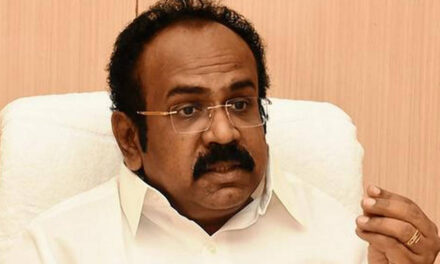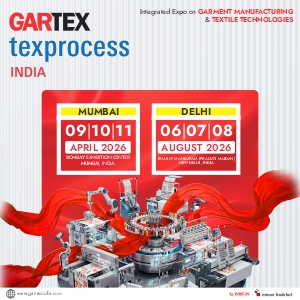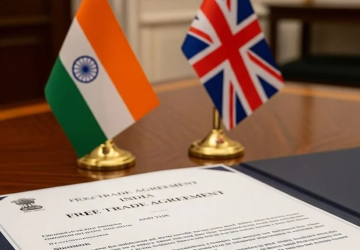 India is planning dedicated outreach programmes in 40 countries, including the UK, Japan, and South Korea, to push textiles exports amid a 50 per cent tariff imposed by the US on Indian products, an official said recently. Other nations include Germany, France, Italy, Spain, the Netherlands, Poland, Canada, Mexico, Russia, Belgium, Turkiye, the United Arab Emirates, and Australia.
India is planning dedicated outreach programmes in 40 countries, including the UK, Japan, and South Korea, to push textiles exports amid a 50 per cent tariff imposed by the US on Indian products, an official said recently. Other nations include Germany, France, Italy, Spain, the Netherlands, Poland, Canada, Mexico, Russia, Belgium, Turkiye, the United Arab Emirates, and Australia.
“In each of these 40 markets, this is proposed to pursue a targeted approach, positioning itself as a reliable supplier of quality, sustainable, and innovative textile products with the lead role of the Indian industry, including EPCs and Indian Missions in these countries,” the official said.
India already exports to over 220 countries, but the 40 importing countries hold the real key to diversification. Together, these 40 countries represent more than USD 590 billion in textile and apparel imports, offering vast opportunities for India to enhance its market share, which currently stands at only around 5-6 per cent, the official said. “Recognising this, the government is planning dedicated outreach programmes in each of these 40 countries, with a focus on both traditional markets and emerging markets,” the official added.
The steep 50 per cent tariff on Indian goods entering the United States, which came into effect from August 27, would impact exports worth more than USD 48 billion. The sectors which would bear the brunt of the high import duties imposed by the Trump administration include textiles/ clothing, gems and jewellery, shrimp, leather and footwear, animal products, chemicals, and electrical and mechanical machinery.
In 2024-25, the overall size of the textile and apparel sector is estimated at USD 179 billion, comprising a domestic market of USD 142 billion and exports worth USD 37 billion. At the global level, the textiles and apparel import market was valued at USD 800.77 billion in 2024. India, with a 4.1 per cent share in world trade, ranks as the sixth-largest exporter and has established its export footprint across 220 countries.
The official also said that Export Promotion Councils (EPCs) will be the backbone of India’s diversification strategy by conducting market mapping, identifying high-demand products, and linking specialised production clusters like Surat, Panipat, Tirupur, and Bhadohi to opportunities in the top 40 countries.
They will lead India’s participation in international exhibitions, trade fairs, and buyer-seller meets, while also running sector-specific campaigns under a unified Brand India vision. The councils will further guide exporters on using free trade agreements (FTAs), meeting sustainability standards, and securing necessary certifications.
“FTAs and negotiations with several of these geographies will help make Indian exports competitive, and there is a huge potential for growth in these areas,” the official added.

















